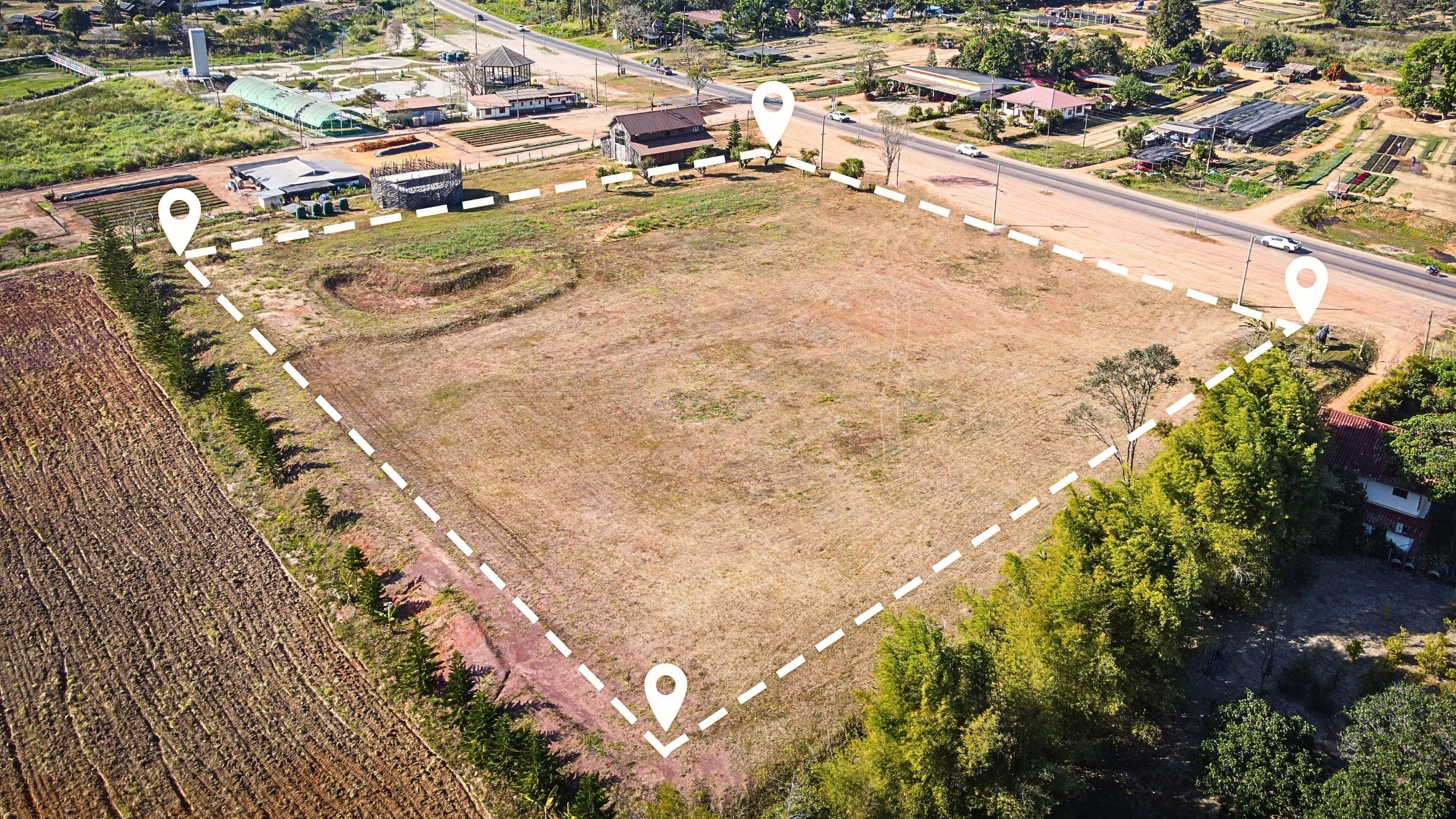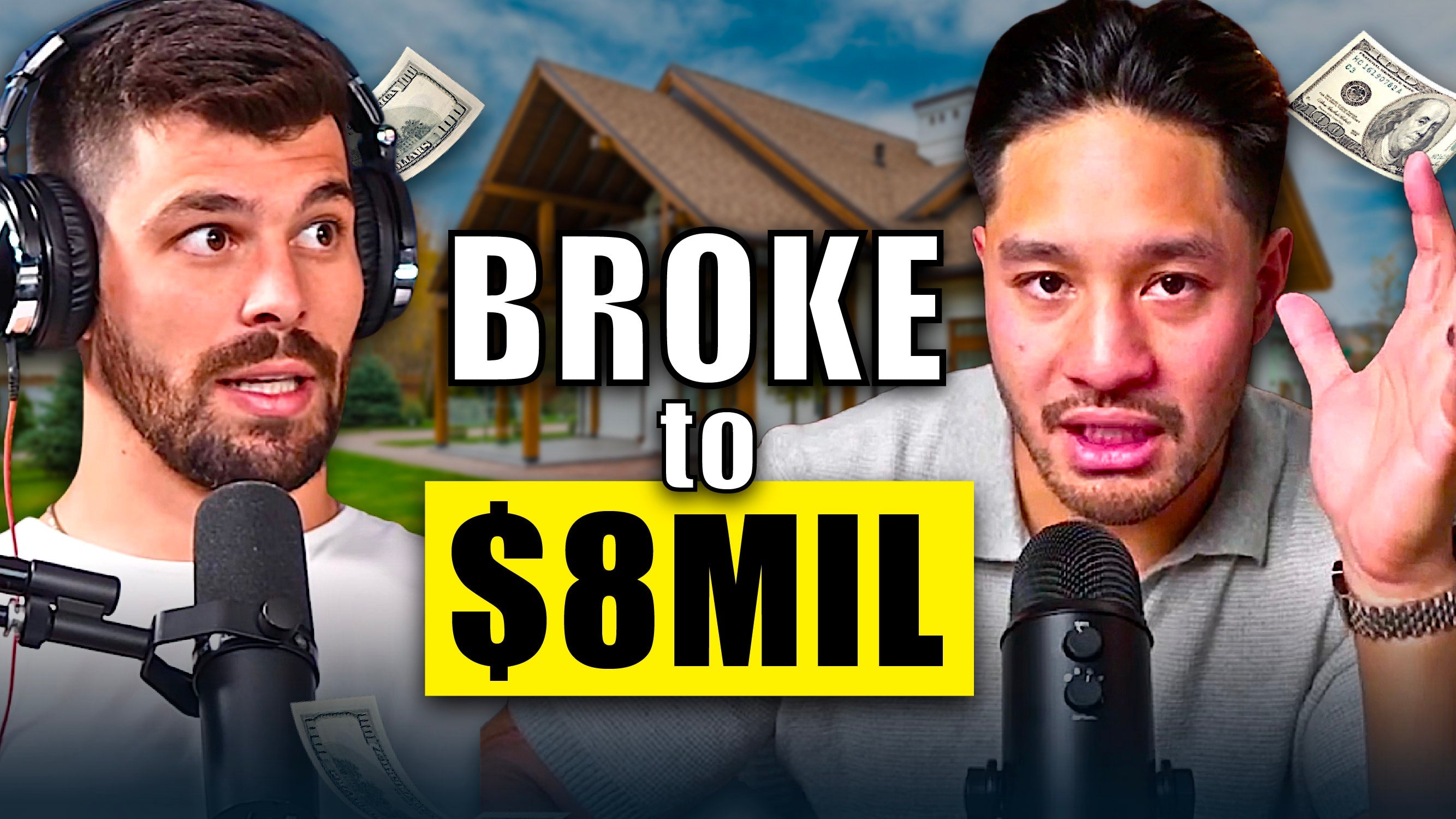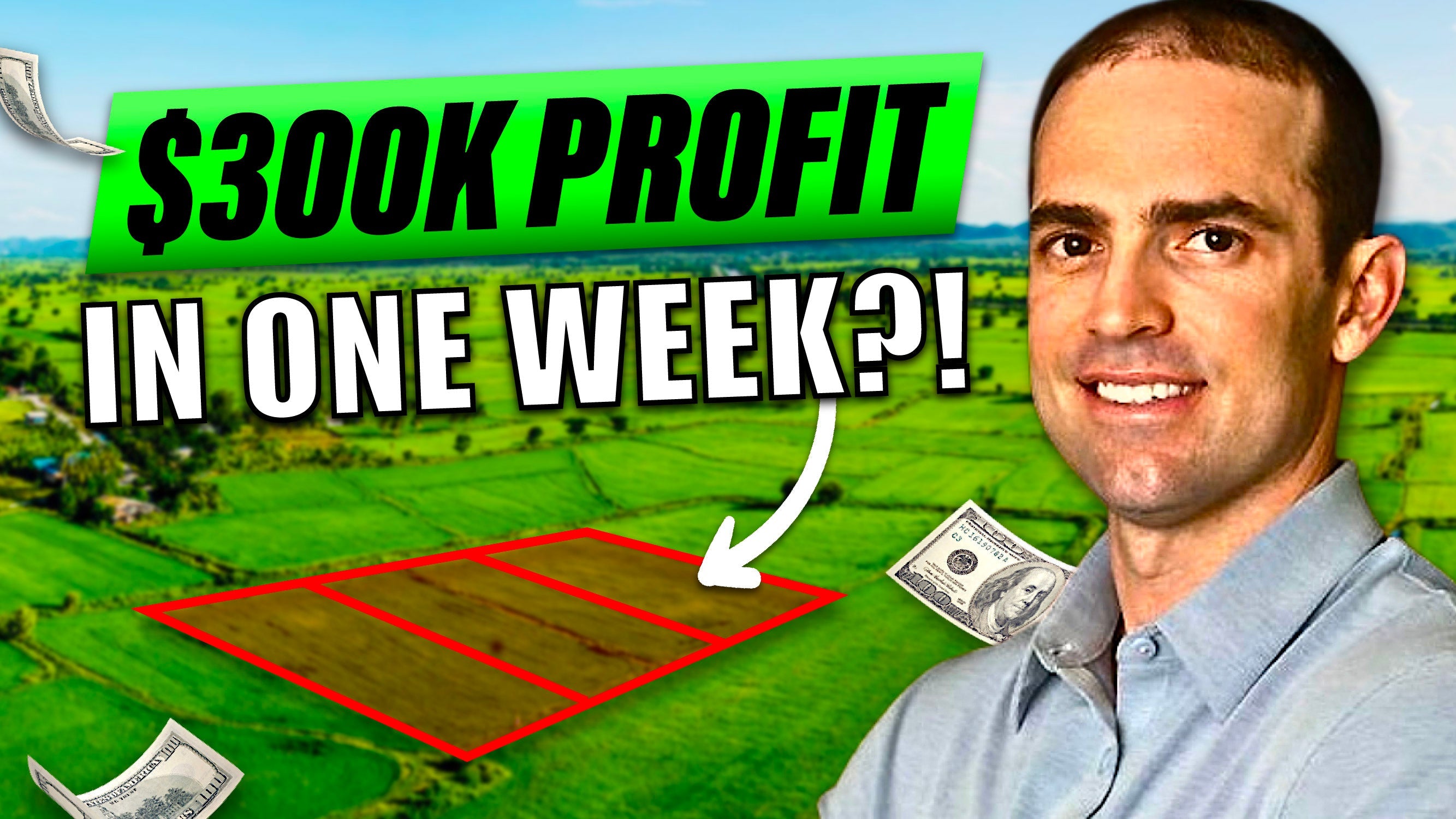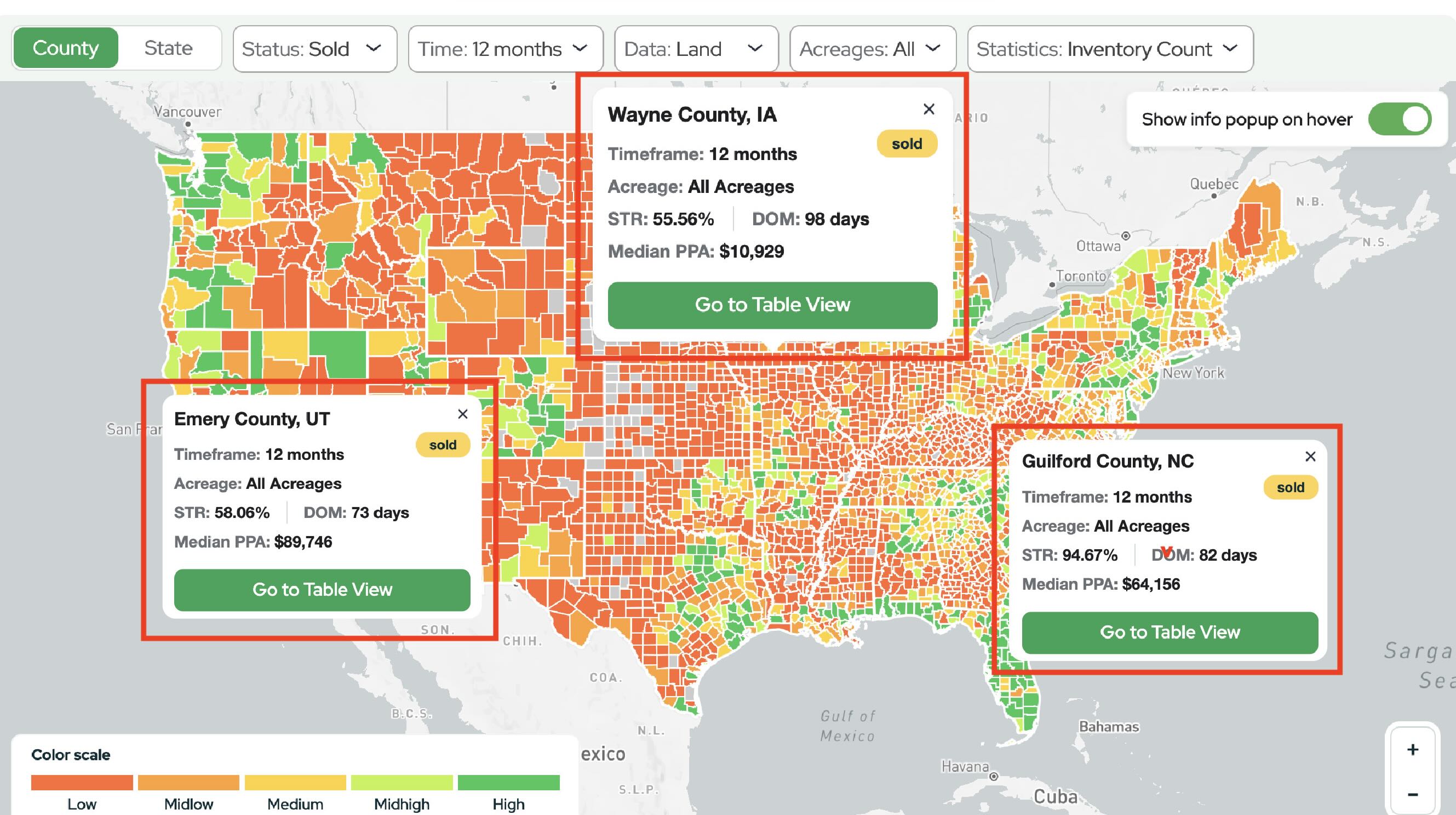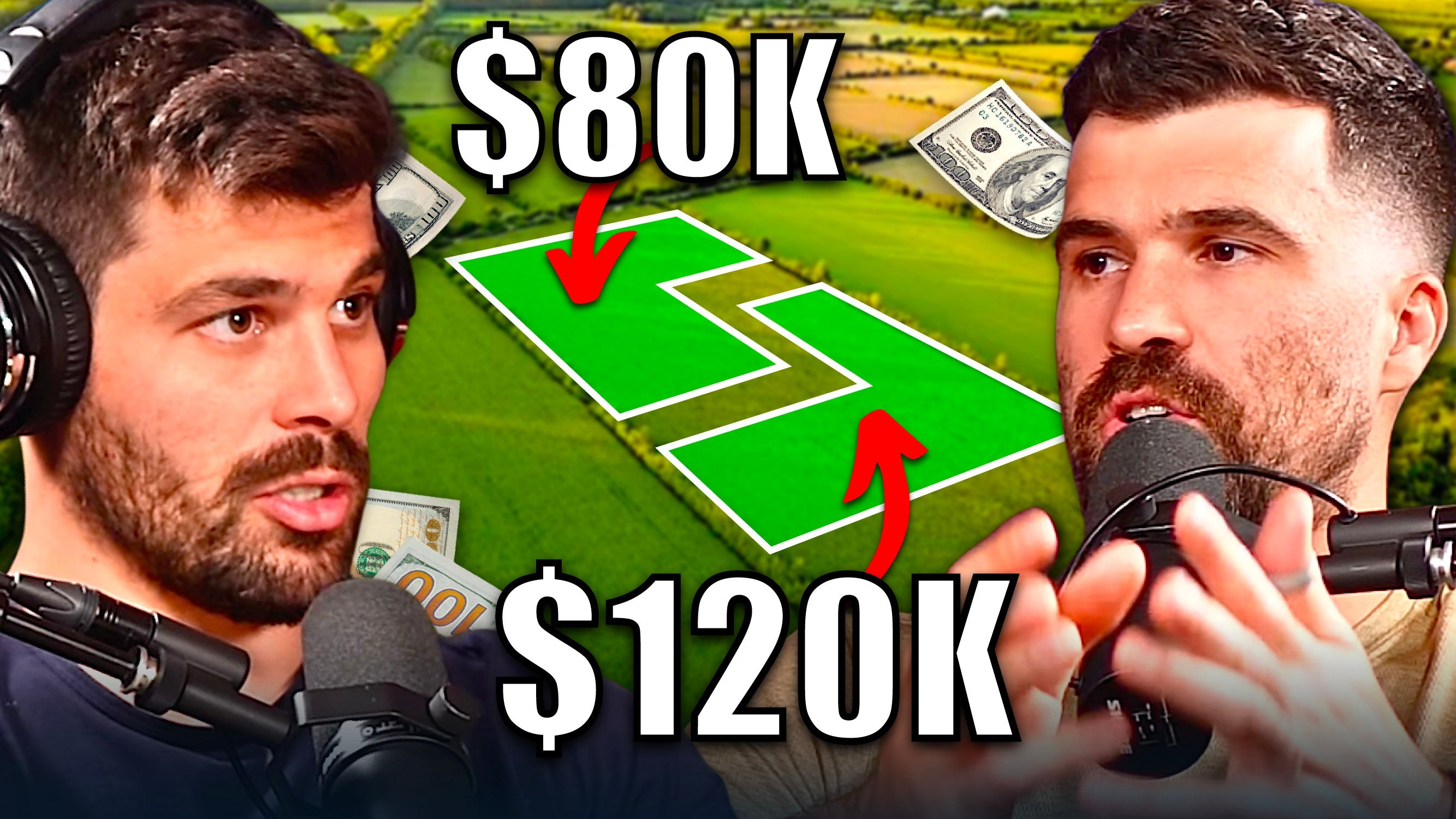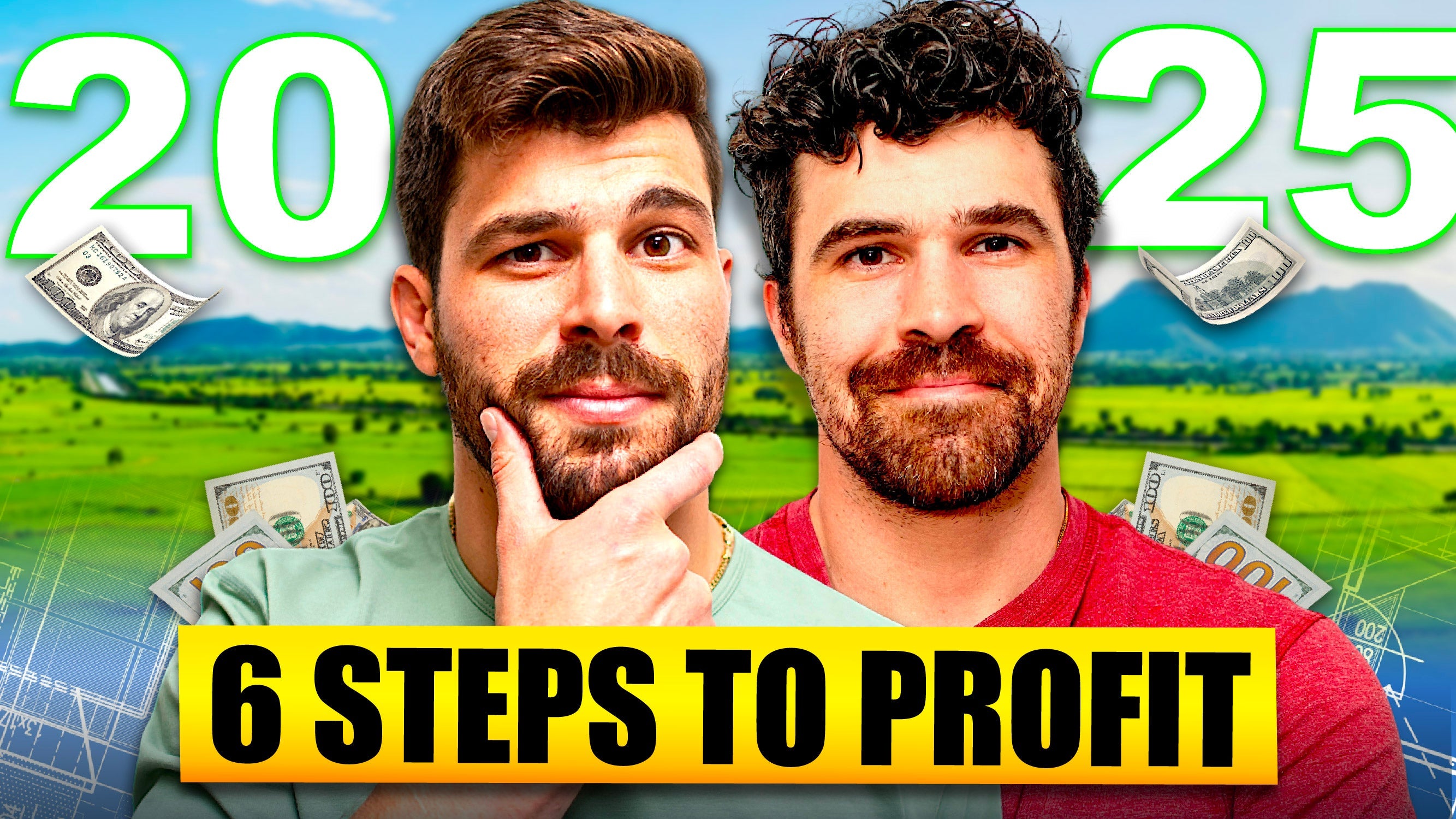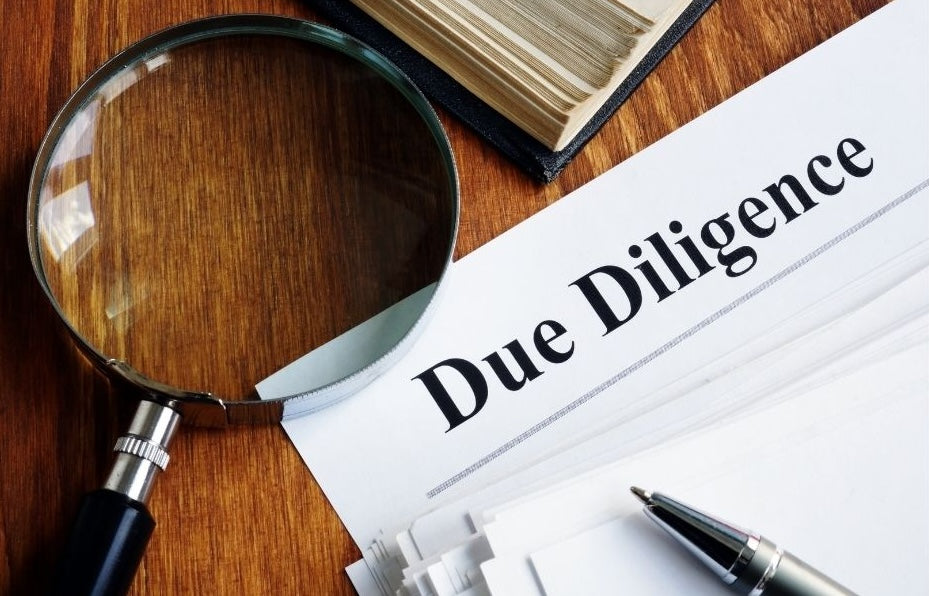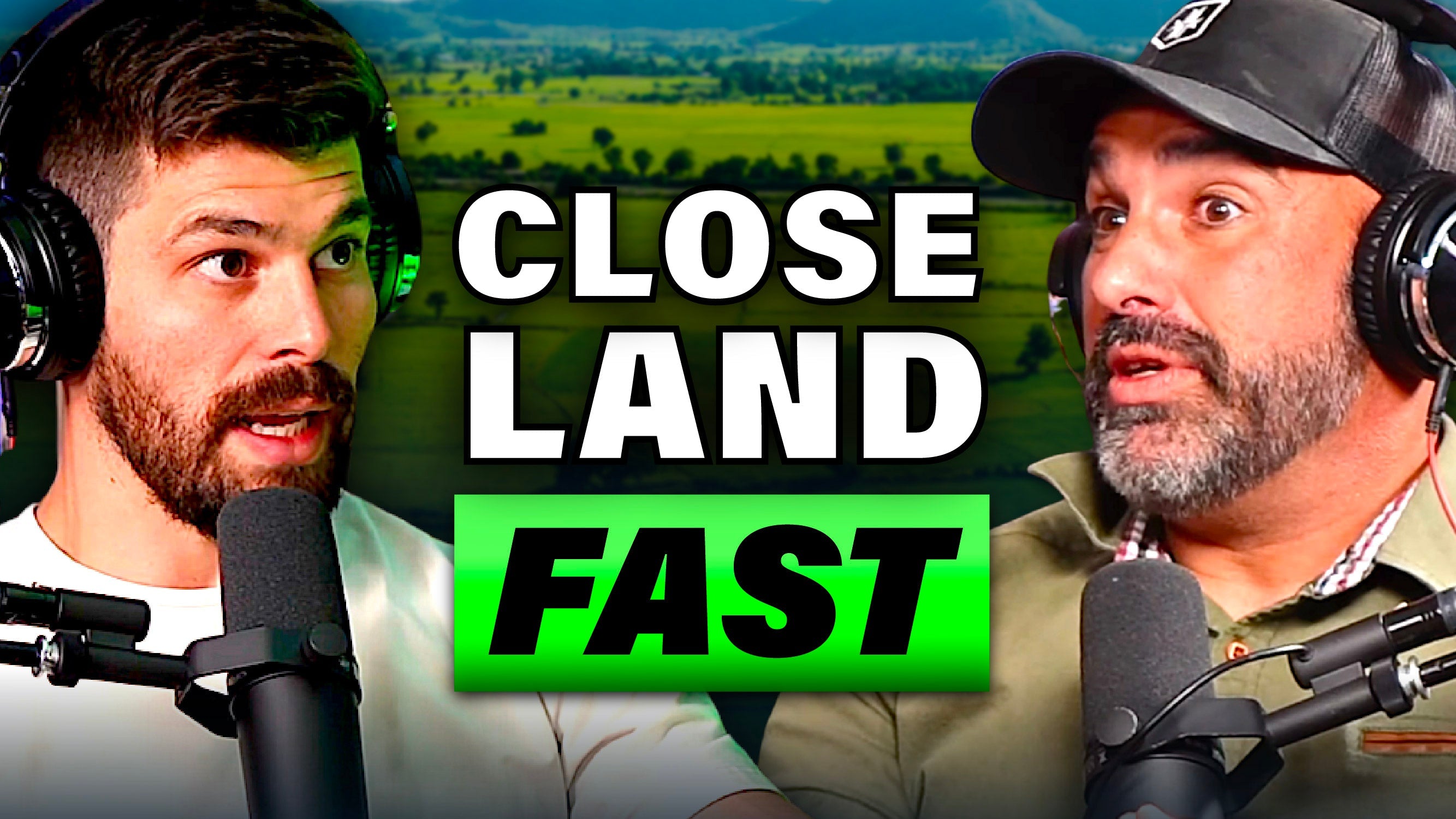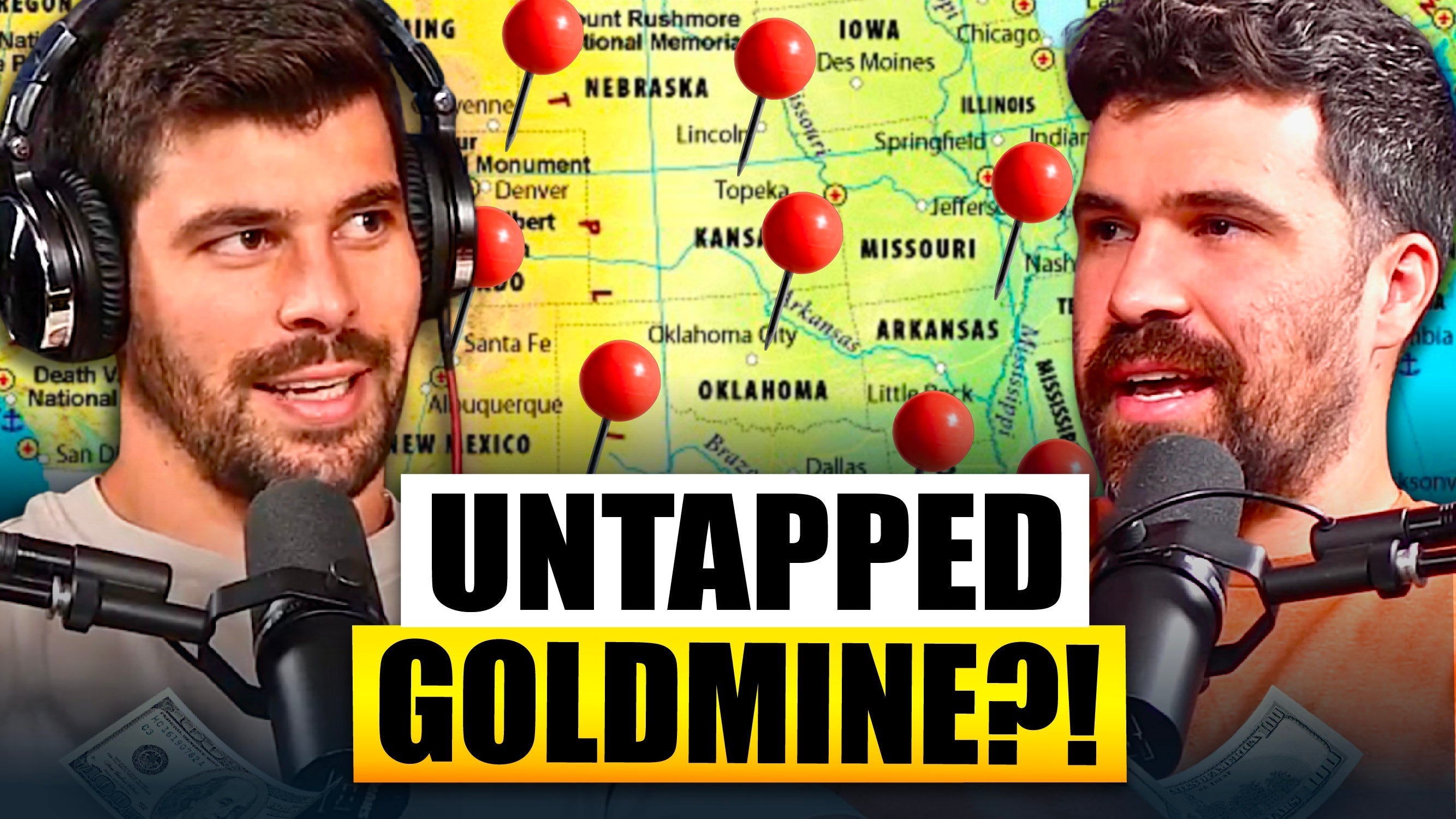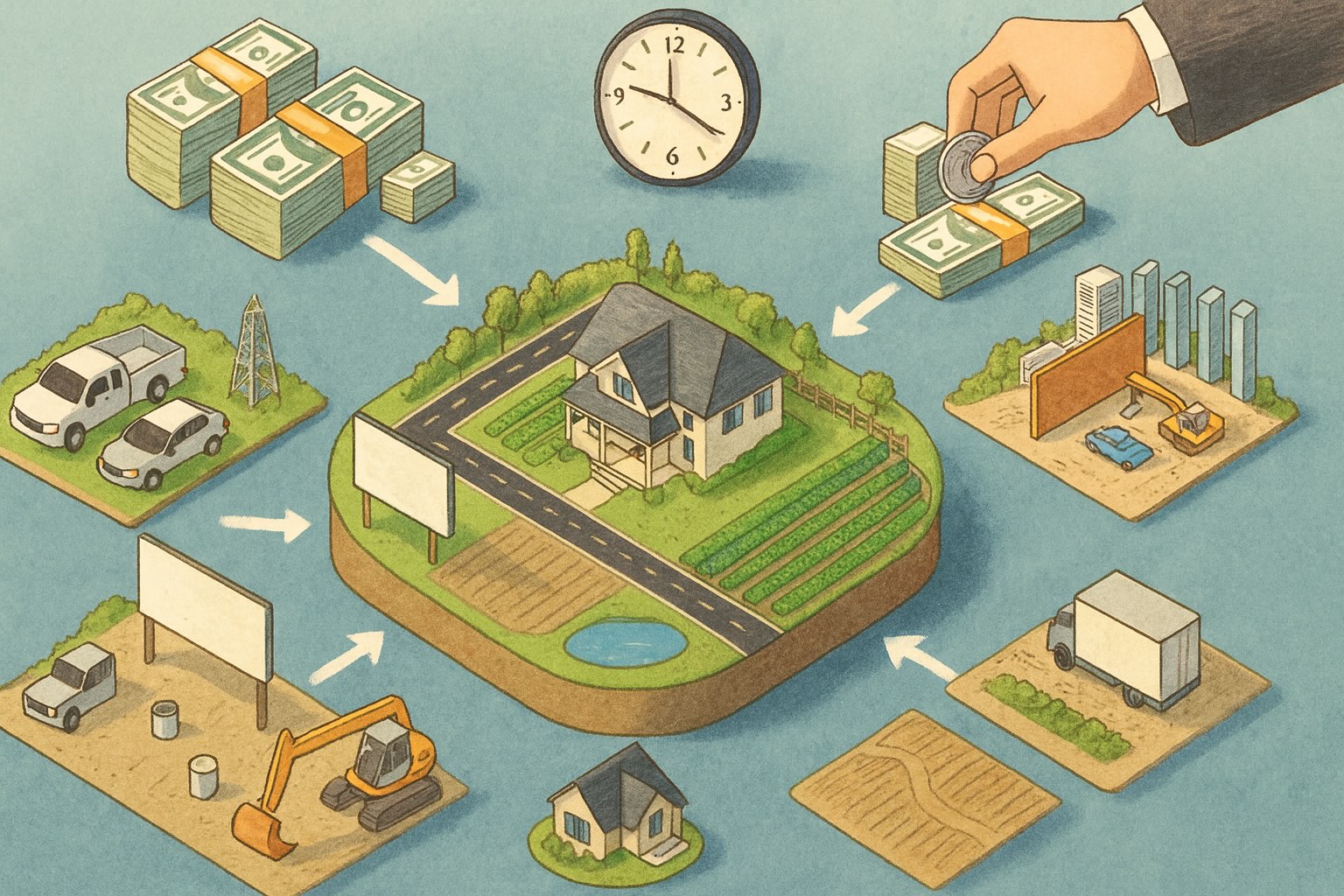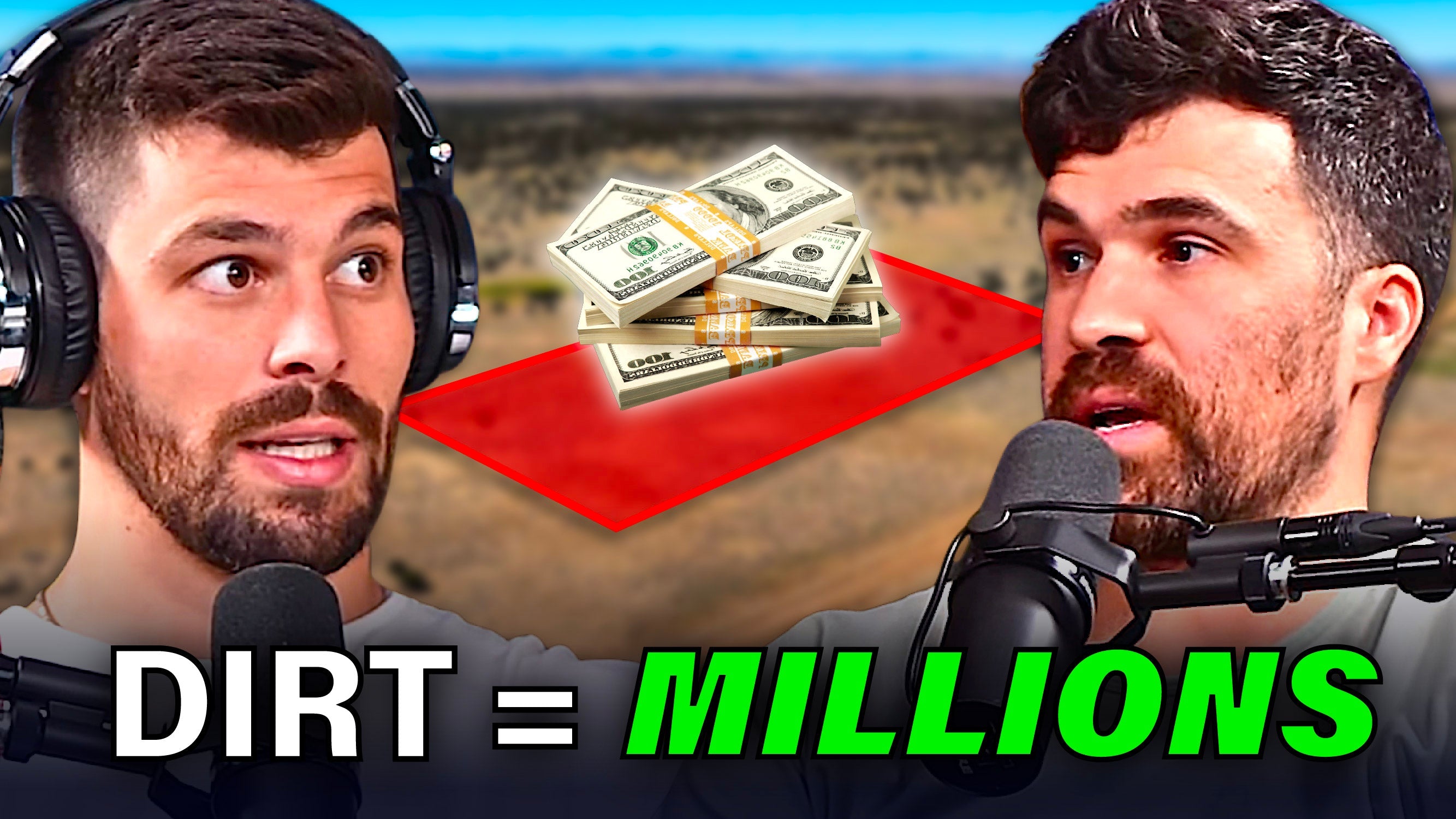Survey Hacking Explained: The Untapped Six-Figure Land Investing Strategy

Survey Hacking Explained: The Untapped Land Investing Strategy

Survey Hacking is an innovative strategy that’s gaining traction among savvy land investors. But what exactly is it, and how can it be used to unlock bigger, more profitable deals?
In this article, we’ll break down the concept of survey hacking and explore how it can transform your land investing business.
Featured
He’s Turning a Few Texts Into Profitable Land Deals With This Hack
March 21, 2025How to Get Started In Real Estate Investing With No Money
March 18, 2023The #1 Mistake New Investors Make When Starting Their Land Flipping Career
June 21, 202410 WAYS You Can Make Money in Land
November 23, 2023Leaving 9-5 Job After 4 Months of Land Flipping w/ Dylan Rusch
April 17, 2024What is Survey Hacking?
Survey hacking involves strategically using land surveys to unlock hidden value in a property. A land survey is a detailed map of a property’s boundaries, features, and legal descriptions. While most investors rely on these surveys to confirm property lines and assess land value, survey hacking goes a step further.
This approach seeks to identify opportunities to subdivide or reconfigure land parcels in ways that significantly enhance their marketability and value.
The Apke Brothers, well-known figures in the land investing community, have been exploring the concept of survey hacking as a powerful tool for boosting profits.
They describe it as a method that not only uncovers overlooked opportunities but also allows investors to make significantly more money with less work.

Join our free Discord channel!
Engage & network with thousands of new and experienced investors, participate in weekly deal reviews, and more!JOIN
Survey Hacking: Step by Step
Step 1: Identify Target Properties
The first step in survey hacking is identifying properties with potential for subdivision or reconfiguration. These are often larger parcels of land with flexible zoning laws, irregular shapes, or underutilized space that could be optimized.

Step 2: Leverage Professional Surveys
Engage a professional surveyor to create a detailed survey of the property. This survey will serve as the foundation for any potential changes you plan to make. The goal here is to identify portions of the land that can be legally separated and sold as individual lots, or reconfigured to create more valuable parcels.

Step 3: Work with Local Zoning Authorities
Before moving forward, consult with local zoning and planning authorities to ensure that your plans comply with all regulations. The Apke Brothers emphasize the importance of understanding the local land-use rules to avoid any legal complications down the line.

Step 4: Execute the Subdivision or Reconfiguration
Once you’ve identified the potential changes and received the necessary approvals, it’s time to execute. This might involve subdividing a large parcel into smaller lots, adjusting property lines, or even creating easements to enhance the value of the land.

Step 5: Market the Newly Configured Land
After the land has been reconfigured, it’s time to market it. You can post your parcels on sites like Zillow, Facebook marketplace, Craigslist, land.com and more. Get " target="_blank" rel="noopener">drone photos of the properties and post them separately.
Survey hacking can significantly increase the value of the land by making it more attractive to buyers who are looking for specific lot sizes or configurations. This step is where the real profit lies, as the reconfiguration often allows you to sell the land at a higher price per acre than you would have for the original, unaltered parcel.

Why Survey Hacking Works
Survey hacking works because it taps into the often-overlooked potential of a property. By rethinking how the land is used and configured, you can create more valuable parcels that appeal to a broader range of buyers. The Apke Brothers have found that this strategy not only increases profits but also reduces the amount of work needed to achieve those profits.
For land investors looking to scale their business and maximize returns, survey hacking is a powerful tool. By understanding the nuances of land surveys and leveraging them creatively, you can unlock bigger, more profitable deals that might otherwise have been missed.
This land investing strategy is more than just a buzzword in the real estate community—it’s a proven strategy that can lead to significant financial gains. By following the steps outlined above, you can start incorporating Survey Hacking into your land investing toolkit and begin closing bigger, more lucrative deals!
Watch the video below for an in-depth look into the full Survey Hacking process and learn how you can start implementing it into your own business today ⬇️
https://www.youtube.com/watch?v=nIm5G4PfRl8
Curious about buying land but don't have the capital? ?
Bring us a great deal and we will fund it for you! Fill out the form HERE to get started. Our team will review your deal and get back to you within 24 hours!
Listen to the Latest Podcast
View Transcript here
Dan: Hey everyone. Welcome back to the real estate investing podcast. Today’s topic. We’re talking about how to get out of a slump in your business. I’m your host, Dan Apke joined again by my brother and business partner, Ron Apke. And this was brought by a member, Brandon M in our paid discord, uh, community in land investing online.
And Brandon said, Oh, we asked for a podcast suggestion and this is one that came up. And I love the idea of it because everyone gets in a slump at some point, you know?
Ron: Yeah. I think my favorite thing about just the idea is like the mindset behind him saying it, like, it’s not like making excuse with external stuff.
It’s like, he’s trying to solve this. Like, how does he get out of this? Like he is looking for solutions. Um, so a lot of people, I think. I think there you’re gonna at some point be in this situation where you’re trying to get out of a slump. It’s a lot of it is starts with that mindset about it. Um, but, uh, I, I liked the topic.
Dan: Yeah, you definitely can’t avoid it in business in general. And that’s why we had a, uh, Podcast a few weeks ago talking about the, the traits to being successful in this business. And I think that’s what a lot of this comes at, or that’s why a lot of people are successful in business. That’s why they are successful is because their traits and that’s why unsuccessful people are not successful is because the lack of those traits, et cetera.
And that’s why we talk so much about grit because like you said, finding a solution, finding a solution to get it done and get yourself out and get yourself on top again is going to be needed at some point in everyone’s business. And I think it’s big to talk about.
Ron: And it happens, like you said, like it is just a business thing.
Like a slump can be a company doing, uh, I don’t know, half a billion dollars in a month versus like 700 million or something like that, like it just relative to what you’re doing. Um, and I don’t know exactly what Brandon situation is, is, is that he hasn’t had a deal in three months, is that he’s only gained two deals a month and he usually gets four or five deals a month, but it doesn’t really matter.
The. Getting out of this is a, I don’t think it’s just mindset. Like there needs to be some different action, like problem solving, all that stuff. Um, but it can be any size, like Starbucks just changed their, fired their CEO, changed their CEO. They were in a slump, but no one would really know unless you’re owning Starbucks stock or something like that.
It’s all relative. That’s interesting point. Uh, you see what he’s, uh, the new CEOs, I think he had 113 million sign in, sign on business. Where’d he come from? Chipotle. Oh yeah, I did see that. Yeah. I thought Chipotle was struggling ’cause I, it’s just a horrible service that I’ve had. Obviously not bottom there, but yeah, they’re clearly doing well.
Geez. And I didn’t know Starbucks was in a slump. I I didn’t either. But they knew that clearly ’cause they fired their CEO and hired a new one.
Dan: Yeah, interesting.
Ron: Bought someone for a ton of money.
Dan: Yeah. Yeah. Not a lot of money compared to their top revenue though. That’s a massive company. . Uh, all right, so let’s get into it then.
So what do you think, like, what, what do you think drives these slumps in terms of why would someone consider, like what can, what’s. What does someone consider a slump? Cause someone like a veteran considers their slumps differently than someone just starting out. I think,
Ron: I think it can be your numbers down like relative to previous months, or it could be, I think there’s two types when I’m just thinking about this.
Your numbers can be down. Like I’ve been doing five deals a month. Now I’m doing two deals a month. Or like your numbers down relative to expectations. Like if you’re scaling up from 10, 000 mailers a month to 20, 000, like you’re going to expect a lot more and a slump could be like, okay, I only grew from five to seven deals a month when I doubled my marketing efforts.
I think the more normal one is your numbers just being down. I’m doing two deals a month. Now I struggling to get a deal. Uh, I don’t remember your base question though, Dan.
Dan: It was like a veteran is going to have different expectations than for sure. Yeah.
Ron: A veteran might be like, I’m trying to do. It might be a dollar thing.
It might just be deal thing. Um, versus a starter in a slump. Like they may have not seen success yet, so they don’t know what it looks like. Uh, so it might just be that starter slump is more just like roadblocks. I think.
Dan: That’s the hardest roadblock
Ron: A hundred percent. Not necessarily just roadblocks.
And it’s, those are very,
Dan: If you get in a slump before you’ve seen, uh, a deal, a deal in some sort of success. Yeah. That’s that gets tough.
Ron: I don’t think it’s a slump then it’s just like a roadblock to success.
Dan: Yeah. That’s not a slump because you never had momentum
Ron: A hundred Percent.
Dan: So a slump then having some momentum, having a business, let’s identify it then as having some momentum, having a business in place, maybe got a deal or two deals or 10 deals or 20 deals.
And then you saw a slowdown for an extended period of time of 90 days or something.
Ron: Just slow down, dry spell. Yeah. A hundred percent. That’s, that’s what I think. Most people who are interested in this topic are going to be looking for like, okay, I’ve slowed down from X to this, um, what can they change?
And I think that’s what we need to answer.
Dan: And I think people analyze that though, based off what just hit me is like all of a sudden if they get some acquisitions, they’re not in a slump anymore. Like just purchase agreements. I’m saying they don’t need to even buy and sell it. If they start getting purchase agreements or good leads, they’re immediately going to come out of that slump.
Ron: And that’s when, when we used to do one on one coaching ourselves, that’s what I always told them. Mike. And it’s hard mentally, like you could get a phone call right after some, I, I try, I tried not to let those conversations turn to like vetting for like an hour. Like this is what’s going on, whatever it is, or venting.
Um, but I always said, like, you could get a phone call. Right after this, where it’s 150, 000 profit deal, and then everything’s shiny sunshine and blue skies and everything like that. So you really got to look from the outside in at your business and not just look at deals because deals is such a small part of the business.
Obviously, it’s how we make money. How much mail are you sending? Are you a slump because you’re not sending as much mail? Are you a slump because you’re not getting as many phone calls? Like you got to figure out what’s actually going on in your business.
Dan: I think so. And the question is, though, for someone in a slump who hasn’t changed anything, and then the slump comes.
And then they start overanalyzing. So you got to be careful looking internal to it is internal. Um, but implement, like my biggest thing is for people in that, like, do they keep, do they do what they they’re doing now or do they change it? Do they stay consistent on what they’re doing or do they change it? That’s the biggest question.
Ron: A hundred percent. And I think it’s how big the drop off was. Um, are you adding more like, or if you’re in a slump, like, okay, let’s try to figure out what I can do. Am I calling back people who called my answering service and, uh, complained to them or bitch to them? Or am I calling, am I calling back hate calls?
Like find deals. Like you got to work for deals in this business. And I think when people have a drop off from like, okay, they got one, two, three easy deals. And then their slump is like, okay, deals aren’t coming as easy. Or I got a. Do a little more work or negotiate or propose double closing. Um, like you need to find a way to make deals happen.
Dan: Yeah. And the bloodline of this business model is based off of leads and deals coming in. So you got to find a way to get leads and get deals coming. If it’s a lack of leads, change your lead strategy or add to it. If that’s the thing, like if it’s a lack of leads, change your lead strategy or get to it and then try to convert those leads.
But then you might have a different issue is closing. Can I take those leads and close them into a deal? Um, so there’s different processes through everything, but if you’re not getting leads, implement a new strategy. Like you got to reach out to landowners and get leads back. You got to find a way for leads.
Ron: Yeah. So I think the person who’s listening to this, like their inputs are the same and their outputs are different. So I think being able to help them as much as possible is like the value we can bring on this episode. And like Dan said, it matters the sample size for sure. Like, is it a month? Don’t analyze after 5, 000.
No. But. That’s it. Adding texting, like texting is cheap. It is very, very cheap. Like you should be at minimum, like getting set up with 10 DLC, which is essentially a texting approval. Go through that kind of stuff. You don’t have to, it’s not going to take a ton of time. Like some people just send a hundred texts a day.
It’s not that crazy of a thing. Um, some people just send follow up texts to people they already contacted, but you need to get in contact with, uh, you need to get on the phone. With vacant landowners. If that’s via Texas, if that’s via mail, um, just fi you gotta figure out a way to do it. Yeah.
Dan: And that’s the easiest way and the cheapest way to get more contact.
’cause you already have the data, you have everything. It’s priced out. You have the comps in the area, you’ve done area, you know, research on the county. So you have the data. All you gotta do is trace the data. Yeah. You gotta skip trace the data. All you have to do is. Really send it. Cause you have everything you already did the county selection.
So it’s not that much more work. The work comes, but the work comes with the leads, you know, and following up and replying
Ron: The setup is, the setup, the, the setup of launch control or whatever software launch control. We love, um, the setup of launch control, the approval process,
Dan: Setting up your product. Yeah. We have videos on it too. It’s in the course and that’s launch control is a lot of work, setting it up and maintaining. campaigns. I meant to say more money than everything like in terms of, but it will get you leads. And then it’s on you because if you have leads coming in, it’s up to you to close them and gauge their interest and do everything you can to try to close that.
If you’re not texting people, that’s the first thing I’d consider. Like you got to be texting people, I think.
Ron: Yeah. And we probably, we need to talk about it more and like, like, cause there is, there’s a bigger, you know, barrier to entry for texting just with time and getting approval and all to do it legally.
Like there’s a bigger barrier to entry just from a work aspect. But once you get it set up, once you’re rolling, like we have people sending 50000 texts a month and they are just they’re killing it because they’re they they They, they made things happen, they got set up, they’re doing all that, and that’s what you have to do, like, to get out of a slump, like, you gotta, maybe just turn up the work a little more, maybe send, like, send text, do this, do that, just, maybe turn off your answering service and answer calls yourself, find a way, getting out of a slump is getting that one deal, for a lot of the people in this situation, how do you do that, and that one deal is gonna feel so damn good once you work for that.
Dan: Yeah, and I think, uh, what you don’t wanna do is, Have the mindset. Hey, I got to wait to send more until I get another deal. No, you’re dead. That’s done. You’ll quit Yo, yeah, you’re you’re you’re gonna that’s not going to work That is the opposite mindset. You got to be on the attack. That’s like going out and hunting for an elk Saying, Oh, it’s just going to come to me.
I’m going to stay right here and not tracking it or putting in the work and doing everything to go find it. You got to go find it. Yeah. Like that’s, I’m watching alone right now. They’re not just sitting there and some rabbit comes in front of them and they, they shoot the rabbit, right? They’re out looking and they’re there for hours and hours, day after day.
And then. A rabbit or grouse or something comes nearby. You got to look for your deals. You got to hunt like deals aren’t going to come in your lap. They’re just won’t like, yeah, that just won’t happen.
Ron: Once you like start working for deals, then you might have a deal or two that like falls in your lap.
And like you start, it’s easy to just sit on your hands and wait for mail to work. Um, but it’s when it’s not working as well as it should, or as well as you think it should, like you got to make things happen. I think it’s just, it’s a. At times like the business can be so easy when deals just come and then some people get comfortable with that and then they have, then they end up with a slump because they’re not doing everything they can to get as many deals as they can.
Dan: Or they had expectations high because their first mailer had, you know, three, four deals. And then it happens. Yeah. Yeah. And then they don’t have a deal for four mailers after that. They’re like, I got three deals off. You know, 1, 300 mailers, my first mailer, and then nothing happens. Like that happens as well.
That’s a good problem to have though.
Ron: If you’re in that spot, like you got to put the pedal down and like, okay, how do I make those three deals? Six deals. It’s just always like wanting more and like figuring out ways to get more out of,
Dan: And don’t analyze what you did on those 1300 because chances are you just hit the right spot at the right time to.
Ron: A hundred percent.
Dan: Like there. And you’re probably aggressive on the phones also, hopefully, but that’s the number one advice for people who don’t do well. Uh, in terms of they have leads and they’re not converting them is usually because of their sales game. So when in doubt work on your sales and negotiation and making deals happen.
Oh, they’re not going to sell this at 45%. Maybe I can get at 55 percent and find the investor for that. Okay. They’re not going to even go to 55%. Maybe I can get at 70 percent and double close it and at least make 30 grand or 20 grand or 100. Whatever it is, you can buy a property for 100 and resell for 140.
What’s those margins? Yep. That’s what are those margins? I didn’t hear the question. If I’m buy a property for a hundred and sell it for 140, what, what’s that? 40%. That’s a 40 percent margin.
Ron: 40,000 profit on a hundred thousand on the purchase. Yeah.
Dan: So that wouldn’t work for deal funding because it’s a profit split a hundred grand out slower margins, but you do that when you’re double closing, you’re on the hunt, you know, you make 40 grand.
It’s like that. You got to just look for opportunities like that. You have people calling you back that own land that are interested in some capacity, see what you can do to help them out. Maybe a subdivide play to, so you can buy it at. 100 percent now because they’re not coming down from 100. Maybe I can subdivide it into seven lots.
Yeah. All these different things come in.
Ron: You know, like one of the things that clicked with one of our, uh, newer salespeople is like, he hunts for no’s. And if you’re not like in any sales, like if you’re not getting no’s, you’re not getting enough yeses. And you hear so many people in this business, like, I don’t think they’ll do a double close.
And I always wonder, like when they say that to us, Are they going to end up pitching it? Or are they just assuming a no, like assuming a no and getting a no or two completely different things. Um, you, you offered a hundred grand or they’re asking for a hundred grand. You offered 40. You think it can make it work at 50, 000, but you never offer that 50, 000.
Cause you assume a no versus actually making, make them say no to you. I have 50, 000 ready to go. Make them say, no, it tells you what they’re going to say yes to also. 100%. That gives you the answer. But it doesn’t even give you a chance. Like I’m, that’s what I’m saying. Like you don’t, you don’t, if you don’t take in a shot, whatever that quote is with Michael Jordan, but if you’re not taking a shot, like you have no chance of getting, making the deal happen.
Um, and that’s what I think people shy away from what they assume a seller’s response.
Dan: That;s not even a shot though. If someone called you and they’re interested in selling and you’re trying to double close, like More than a shot. I think an offer in the mail is a shot.
Ron: Mm-Hmm. .
Dan: If they’re calling you back and they’re interested in selling and you can double, that’s like a,
Ron: I’m saying people scaring away from sellers who are asking for too much money.
That’s a mid-range shot. Yeah. Yeah. , I, I’m just not a layup, but I’m saying they don’t even try to get a No. Like they just assume a no. Yeah. Um, when they’re trying to negotiate, they never show. And that’s, that’s for d salespeople, that’s what D salespeople do.
Dan: Yeah. That’s being, that’s being scared. Yeah. A hundred percent.
Ron: Yeah. If you’re fair. If you’re scared to have a tough conversation, get a knell. That’s not even tough, right? Be shut down.
Dan: People on the other side don’t get uncomfortable. It’s always the person talking that’s uncomfortable. It’s like when, when I’m talking to salespeople, I’m not really uncomfortable that they’re trying to sell me something as much as.
as salespeople are uncomfortable on the other side. The other side is always like the person pitching. It’s always feels the most uncomfortable. I think then the other person, as long as you set up the right environment and everything, you know what I mean? Yeah. Does that make sense? It’s never as bad as you like pitching something.
Isn’t it shouldn’t be a scary thing. I understand it is. I know it is from fact, I never liked to call people to negotiate down and things like that. It’s, uh, but you do it anyways. And it’s, it’s just like a lot of times you’re going to be happy that they’re offering, you’re offering them another solution.
Ron: You, you got to have those conversations, no matter what it is. Like you got to be able to will willing to have tough conversations. I really, I don’t think that I know that if you’re not like you, you are losing deals, um, you know, Even if you’re not technically in a slump, you are losing deals if you’re not having tough, tough conversation.
So I think that is like, you, you got to analyze your business, but you don’t want to overanalyze. I think that’s the biggest thing for people who are, uh, maybe in a slump.
Dan: You also want to see where yoiu’re spending your time though. Like, did we talk about that? We haven’t. So where, like, where are you currently spending your time in your business and make sure you’re spending it on the right.
You want to be spending on sales. You want to be sending out and sending and marketing, getting your tech set up, uh, text leads coming in the operations behind that you want. Like, like I said, the business is made, the business model is made from acquisition. So spend your time on acquisitions. Don’t spend it on.
Scrubbing your list outsource that for five bucks. Don’t spend it on. What do people do diligence before a purchase agreement? There’s three hours of your time You could have selected ten more counties and had been six months ahead You know what? I mean like spend on the right times to keep your marketing machine going until you have a constant flow.
Ron: Some people get so like Theoretical about the idea of a deal when a seller like so little not so little interest But like they don’t have any like confirmation that a seller is willing to do something.
They start calling the county they start I don’t know. Just so like you said, due diligence on stuff where you don’t have a commitment from the seller might be the biggest time waster. I see out there a hundred percent.
Dan: If it’s a big dea, it’s okay. If you, if they’re interested, very interested in, it’s a big deal and it’s going to take some work and you got to look at things I understand, but if it’s just a buy and flip for 24, like get the purchase agreement, don’t do all that.
You’re going to waste so much time, but if there’s improvements and different things, things change a little bit. We just worked on that deal that with Christina, we bought it for 450 grand. How long did that go on? We were always under contract though. Not always.
Ron: Not always.
Dan: No we weren’t.
Ron: Yeah.
Dan: No, we weren’t.
I don’t think we were. I mean, for four months,
Ron: Yeah definitely. I mean for a set of price we can make it happen.
Dan: Several months. We were not under contract.
Ron: Yeah.
Dan: Like several months. And then we got under contract, but the due diligence was done, but that’s also a half a million dollar deal.
Ron: Yeah. It’s all, it’s relative to the size of the deal, I think, but that is a place I see a lot of people like wasting time.
And like, yeah. They know everything about a property. Then I like, do you have a purchase agreement? Like, no, I’m like, okay, you got to get that purchase agreement. Like that’s step one. Like we know what we think we can sell it for. If you have to negotiate down after a purchase agreement, that is not the worst thing in the world.
Dan: There’s a clause on there. Yeah.
Ron: Yeah. Like you can negotiate after a purchase agreement. A lot of times those work out.
Dan: It’s not a bait and switch either. Cause you want to buy it at that price. It’s just, if something comes back bad, a hundred percent. Yeah. Bait and switch. People always ask, someone asked me that on YouTube a few weeks ago and they said, why don’t you just offer them high?
So they get the call and bring them down. And I was like, that is. Extremely illegal and extremely unethical.
Ron: Yeah, it’s just not. Yeah,
Dan: That’s a bait and switch and you will get they’ll come back to you
Ron: Yeah if you are doing that intentionally at scale And a lot i’ve heard that multiple times and it is like an illegal and I because we do the opposite thing We underprice sometimes do by accident which hurts in the same way Yeah, we try to price effectively where the deal makes sense for us and the deal makes,
Dan: 50 percent of our purchase That’s why that’s why If we got sued or something for bait and switch, we’d show the data and we’d be like, we buy over 50 percent of our properties from the offer price or higher.
We buy 75 percent of them from offer price to higher.
Ron: Yeah, there’s not that we’ve never once sent out mail with that intent to have to negotiate down The only time we negotiate down is if we price wrong We just mess up or something’s wrong with the land and the deal just doesn’t make sense at the price
Dan: Yeah, that makes sense. I think this was good. you have anything else to add or?
Ron: I don’t. I think it was good If you got I mean if you’re on a slump, it’s part of the business. It’s part of an entrepreneur Uh, is ups and downs for sure. And like, try not to let the downs be too low and try not to like, let the highs get too high with you.
Um, I think it’s an important part of being an entrepreneur. It takes time though, for sure. And if you’re, you get it so emotional about every little up and down, it becomes much more difficult. Absolutely. Other than that, guys, if you’re watching on YouTube. Hit the subscribe button below Apple or Spotify.
Leave us a review, share it with a friend, put it on your Instagram story. Thank you so much. We’ll see you next time.
Dan: Thanks for joining guys. As always, thank you for joining. Please do us a huge favor and like and subscribe our YouTube channel and share this with a friend. It really means the world to Ron and I, but more importantly, it could help change the life of someone else.
Thanks for joining and we’ll see you next episode.
Watch the Full Episode Here
https://www.youtube.com/watch?v=lPMU9s0UL8Q





































